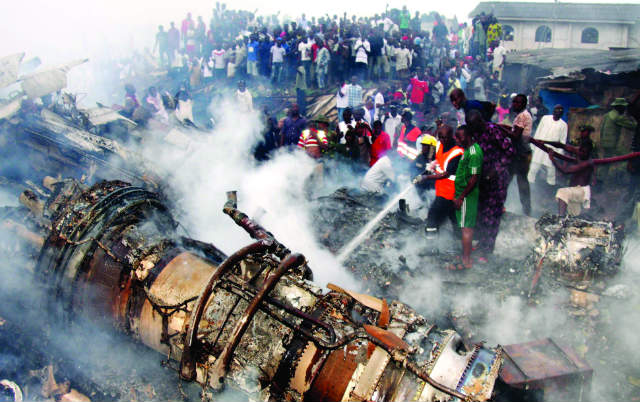As IATA stresses a continuing falling accident rate in its annual review of commercial airline safety, the circumstances of the Dana Air crash in Lagos serve to remind that global progress is far from a uniform affair.
Nigerian investigators’ newly disclosed narrative detailing the loss of the MD-83 almost amounts to a roll-call of the sort of practices that might tempt IATA’s safety teams to bang their collective heads despairingly against the walls of its Geneva headquarters.
The culmination of sloppy internal processes, technical failure, clumsy decision-making and poor airmanship, the Dana Air accident’s most astonishing aspect is probably that it did not happen sooner.

KeystoneUSA-ZUMA/REX/Shutterstock
With such crude failures still evident in African air transport, any apparent improvement in the continent’s safety statistics carries a hefty disclaimer. If Nigeria, its richest economy, can still fall desperately short in the mainline jet transport sector, the prognosis for other nations cannot be good. Only 22 African states reached at least 60% compliance with ICAO standards last year.
IATA wants its safety auditing schemes – required for membership – to become fundamental to Africa, through being part of an airline’s certification process.
Such a proposal can only be beneficial. Never mind fine-tuning, much coarse-tuning is still necessary before spurious bright blips in Africa’s air safety record settle into a real and encouraging long-term trend.
Source: Flight International


























